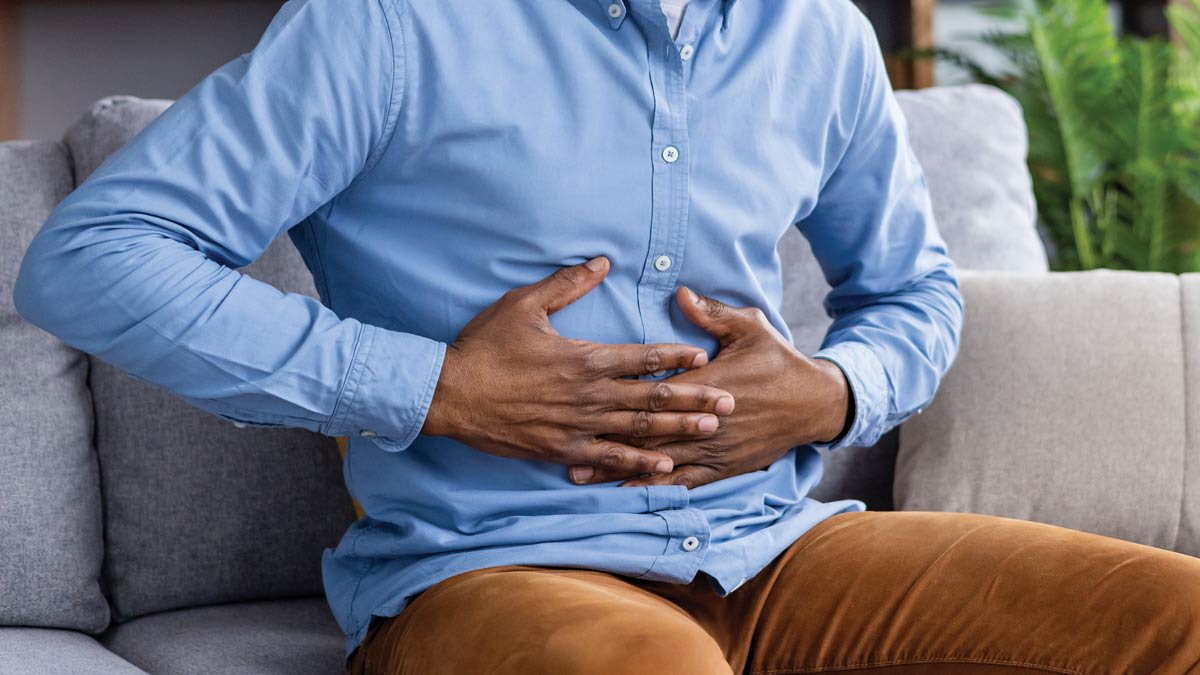Drugs aren’t always the best way to manage symptoms
By Sally Wadyka
About 10 to 15 percent of adults in the U.S. have irritable bowel syndrome, a condition that causes abdominal pain, gas, diarrhea, and constipation. It’s typically diagnosed in early adulthood, but plenty of older adults deal with IBS symptoms. "There is no ’cure’ for IBS," says Jessica Jou, MD, a gastroenterologist at Henry Ford Health in Detroit. "But there are effective strategies for managing symptoms and improving quality of life."
Finding Your Food Triggers
A recent study published in The Lancet Gastroenterology & Hepatology found that dietary changes were more effective than medical treatment for IBS. In many cases, a low-FODMAP diet can provide relief. It significantly improved symptoms in 76 percent of people who followed it in the Lancet study.
The "F" in FODMAP stands for fermentable. During fermentation, the "good" bacteria that live in your gut break down fiber and other indigestable carbohydrates in food, namely oligo-, di-, and monosaccharides and polyols (thus FODMAP). "This process creates gas and other chemicals within your gastrointestinal tract," Jou says. "It happens to everyone, but those with IBS are more sensitive to it, and it can lead to gas buildup and bloating."
FODMAPs are in many foods, such as onions, garlic, bread, pasta, kidney beans, cashews, and apples. "The diet is very restrictive and can be hard to follow," Jou says. She recommends working with a dietitian to help determine which foods cause symptoms and to make sure you’re getting enough nutrients.
Eating smaller meals more often is also important. "They’re likely easier to digest, possibly because they don’t spend as long fermenting in your gut," says Mona Rezapour, MD, a gastroenterologist at UCLA Health.
How Exercise Helps With IBS
Even moderate exercise (like taking a walk after dinner) stimulates the gastrointestinal tract and can help with symptoms such as constipation, gas, and bloating. It may even lower the risk of developing IBS in older adults. A 2023 study of more than 175,000 adults, published in The Lancet, found that those with frailty—a condition that results from a lack of muscle strength and a decline in other physical functions—were nearly twice as likely to get IBS. "Strength training and yoga can help prevent frailty," Rezapour says.
The Relaxation Factor
Your brain plays a surprising role in IBS. The brain and gut are directly connected by a complex network of nerves that acts like a highway running in both directions. "Stress and anxiety can trigger GI symptoms, but having GI symptoms can also trigger stress and anxiety," Jou says. Relaxation methods like deep breathing can calm your nervous system, helping to alleviate IBS symptoms and reduce some of the stress that exacerbates them.
If You Still Need More Help With IBS
If lifestyle changes don’t help your IBS symptoms, talk with your doctor about the next best step for you. If you need to add medication, doctors often recommend starting with over-the-counter drugs that tackle your primary symptoms, like polyethylene glycol (such as MiraLax) or soluble fiber (such as Metamucil) for constipation, peppermint oil for abdominal pain and cramping, or antidiarrheals. For older adults especially, prescription drugs for IBS should be used only if OTC remedies don’t work. That’s because some of them—like tricyclic antidepressants and antispasmodics—can have adverse effects, causing sedation or cognition problems.
Editor’s Note: This article also appeared in the November 2024 issue of Consumer Reports On Health.
Consumer Reports is an independent, nonprofit organization that works side by side with consumers to create a fairer, safer, and healthier world. CR does not endorse products or services, and does not accept advertising. Copyright © 2025, Consumer Reports, Inc.
Source link
